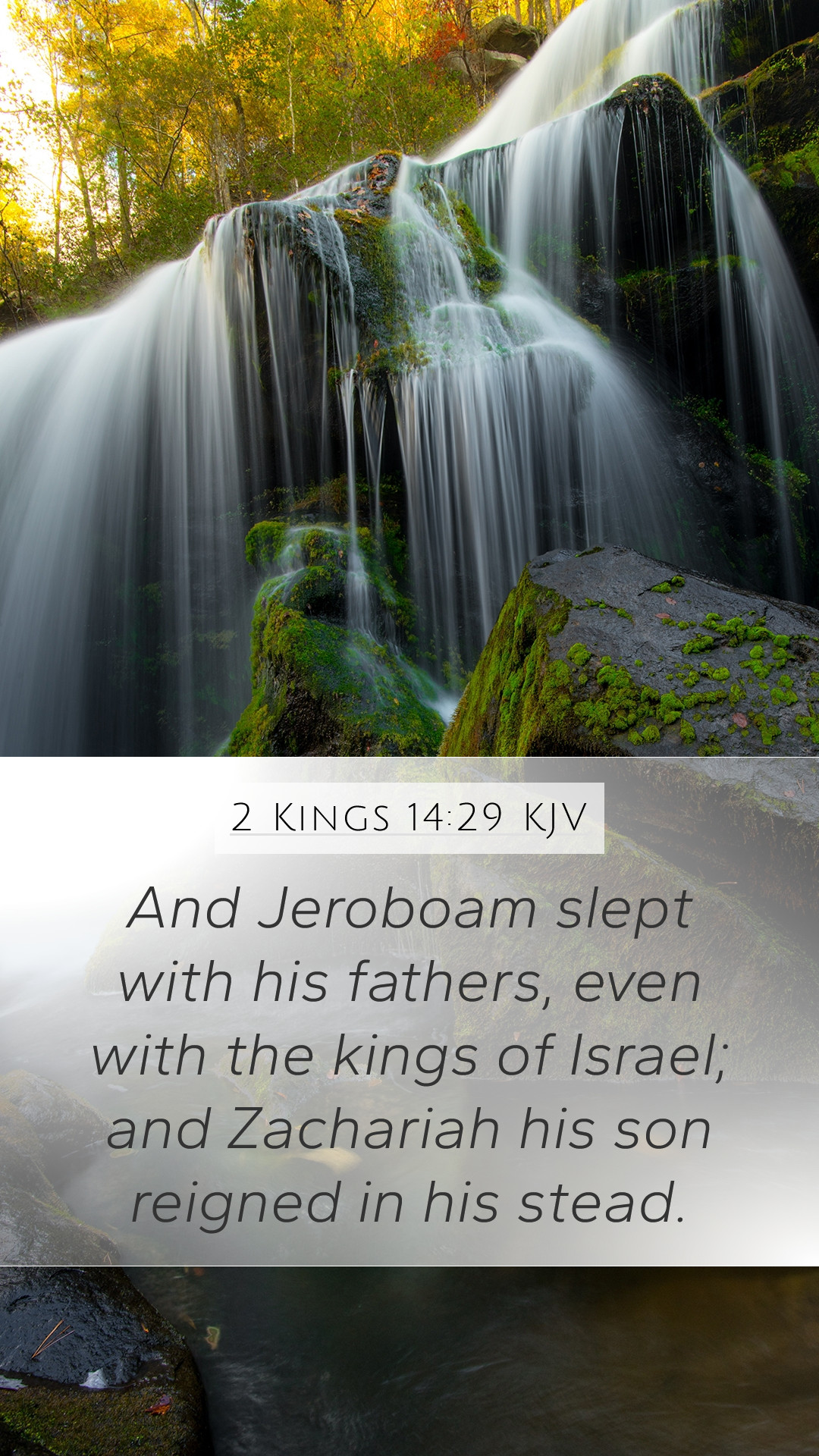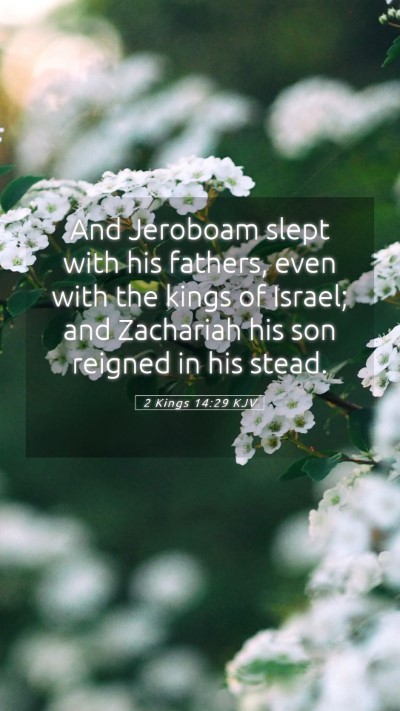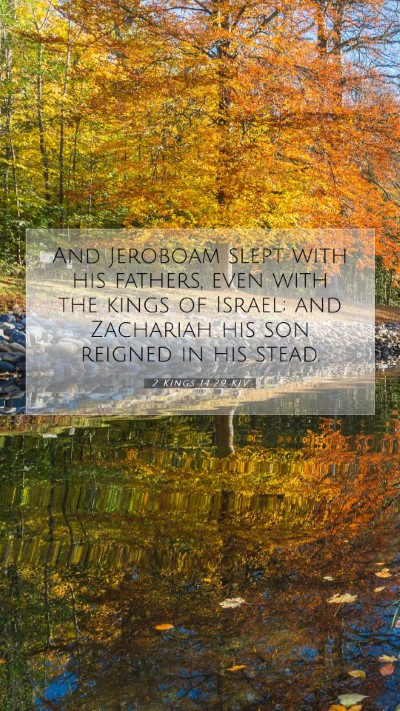Understanding 2 Kings 14:29 - Bible Verse Meaning and Exegesis
Verse Reference: 2 Kings 14:29
Bible Verse: "And Jeroboam slept with his fathers, and they buried him in Samaria; and Zachariah his son reigned in his stead."
Overview of the Verse
This passage presents the end of Jeroboam II's reign over Israel, highlighting both his death and the succession by his son Zachariah. The brevity of the statements captures a significant shift in leadership and serves as a transition to the subsequent events in the history of Israel's monarchy.
Commentary Insights
- Matthew Henry's Commentary:
Henry emphasizes the importance of leadership transitions in Israel's history. Jeroboam II is noted for his military successes and the restoration of Israel's borders, but his end came like that of many kings, showing the ephemeral nature of power. His death leads to uncertainties in the kingdom, paralleling the instability that often followed the death of a monarch. Henry reflects on the need for righteous leadership and how the legacy of Jeroboam II was mixed—marked by both achievements and spiritual decline.
- Albert Barnes' Notes:
Barnes analyzes the implications of Jeroboam's reign and his lineage. He indicates that Jeroboam II, despite his success, continued in the sins of his namesake, leading Israel away from true worship. The mention of Zachariah succeeding him foreshadows the continuity of the issues faced by Israel—wickedness and disobedience to God’s commandments. Barnes further connects the lineage aspect, stressing the significance of succession in Israel's monarchy.
- Adam Clarke's Commentary:
Clarke provides historical context, noting Jeroboam II's role in restoring Israel to a measure of prosperity. He also highlights the socio-political conditions during Jeroboam II's rule. Clarke points out that the mention of his burial in Samaria signifies not just death but the closure of his reign that was marked by both success and idolatry. The transition to Zachariah is seen as crucial, as it continues the narrative of Israel's tumultuous royal lineage.
Historical Context
This verse falls within a pivotal historical context for Israel, where the divide between the northern kingdom (Israel) and the southern kingdom (Judah) greatly influenced political and spiritual dynamics. Jeroboam II's reign was characterized by territorial expansion and economic prosperity, yet it was also fraught with spiritual decline as the people often turned to idol worship.
Applications and Significance
The verse speaks volumes about leadership and heritage. It emphasizes the importance of righteous governance and serves as a reminder of how one's legacy can impact future generations. In our own lives, the principle of leading by example and the consequences of our actions carry significant weight, especially in a community context.
Cross References
- 2 Kings 10:29 - Discusses the continuation of Jeroboam's sins.
- 2 Kings 15:8-12 - Details about the reign of Zachariah and its implications.
- Amos 7:9 - Prophecy regarding the house of Jeroboam specifically highlighting consequences for sin.
Conclusion
In summary, 2 Kings 14:29 encapsulates a significant moment in Israel's monarchy, focusing on the transition of power from Jeroboam II to Zachariah. The insights from various commentaries enrich our understanding of this verse, linking themes of leadership, legacy, and spiritual fidelity. This passage serves as a reminder of the historical consequences of turning away from God and the importance of righteous leadership through generations.
Further Study
For those looking to deepen their understanding of this verse, consider utilizing Bible study tools and resources to explore related passages and themes. Engaging with Bible study groups can foster discussions centered around leadership qualities and lessons applicable to modern life.


